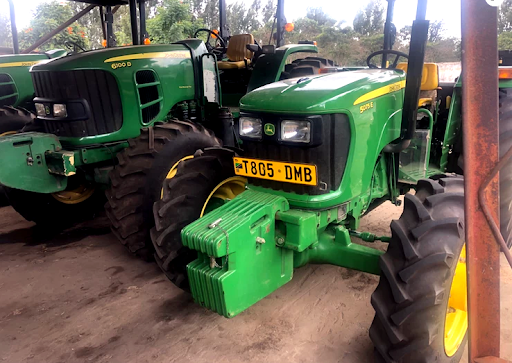If John Lennon was an agronomist and could see the state of farming in Zambia he would likely re-write his song “Imagine,” Bill Crabtree says — as he doesn’t believe the local population realizes their potential.
The opportunity for food exports and food security is a genuine reality in Zambia and Africa as a whole, he says, and it’s time for stakeholders to do something about it.
Crabtree is playing a major role in Arise African Agriculture, a program working with the Zambian Institute of Agriculture and investors that is pushing to make all tools to be made available to farmers. The program also provides partial funding and knowledge to put local small-holder farmers into co-ops and ensure they have skin in the game.
“Such commitment is vital, as is noble leadership and I have met many such people who could chair such co-ops,” says Crabtree, a longtime Australian no-tiller and former speaker at the National No-Tillage Conference. “The future is exciting, and with a few tweaks great things are possible for Zambian agriculture and people empowerment.”
Zambia appears to be a microcosm of missed opportunities for viable farming operations that will feed the country. It is likely 85% arable and has three or four times the yield potential of the farmland in southwestern in Australia that Crabtree is familiar with. That doesn’t include irrigation potential.
Crabtree says the soil is mostly deep loams with mild acidic soil, there is good annual rainfall and modest natural soil nutrient levels. There is ample lime and it has huge potential for irrigation, he says.
“Zambia has cool and dry winters that could grow any cool-season crop with irrigation. There are almost no frosts in winter and none in spring,” Crabtree notes. “Zambia can rapidly improve and expand its agriculture.
“There are some strong and useful regulations with tax exemption for several years for a new investor farming business. However, the government subsidizes fertilizers for small farmers and also holds the price of maize down. The current price is only $110 per ton and that restricts exports”
Such interference, he says, makes maize growing hardly profitable, and one way around this is to put the crop into animals.
Further biotech is not favored — but that could change as Malawi is demonstrating them this year, “and this may inspire Zambians to adopt. And Zambia just elected a new president,” Crabtree says.
“Biotech would revolutionize crop production, as weeds are the main yield-limiting factor and armyworm makes the maize toxic and farmers reliant on insecticides.”
The use of no-till in Zambia is limited, and Crabtree says farmers often think that the soil can only support cropping for 3 years before needing rest. “However, with no-till we know that’s not true. Experience tells us globally that with no-till the soil will keep getting better with time,” he says.
If all the tools of smart farming were adopted, Crabtree predicts Zambia will become “grain storage central.” Winter temperatures are perfect for irrigation and winter crops, and in the summer warm-season crops can be grown. Warm-season crops can even be grown in the winter (although slowly) and so can so many horticultural crops.

Farmers in Zambia generally have good access to ag machinery, as well as fertilizers, herbicides and plant genetics from South Africa, Bill Crabtree says.”
Technology Exists
There is good access to South Africa suppliers of fertilizers, herbicides, agricultural machinery and crop genetics, Crabtree says. Most small local Zambian farmers use fertilizers and pesticides.
The main cooking and heating for Zambians is from charcoal, as it’s a cheap and a logical source of energy. But the forests are being stripped of the old large trees which will never be replaced. This also removes wildlife habitat and creates a vacuum for weeds to invade.
“Nature hates a vacuum!” Crabtree says. “So, weeds do abound and weed seed banks are huge. So farmers use tillage and glyphosate pre-sowing and delay seeding to give the in-crop herbicide some chance of a result. Despite this, I have yet to see a small-holder farmers field look weed tidy.
“If people were consistent about their concern for global warming I would think that they would discourage Africans from burning charcoal and expand hydro and gas energy technologies.”
‘Largely Untapped’
Crop yields are damaged by tillage, depleted soil organic matter, no residue, weeds and poor soil structure and soil health.
“The future for farming here is largely untapped. Smart farming would clean up grassy areas that now burn every yearm,” Crabtree says. “The energy from the grass could rather feed the soil, which would improve air and soil quality and farming productivity.
“The 70% of Zambians that currently farm small areas could have their standard of living lifted and there would be no need for non-governmental organizations and other nations to invest (or colonise) and try to influence Zambian national policies and businesses.”







